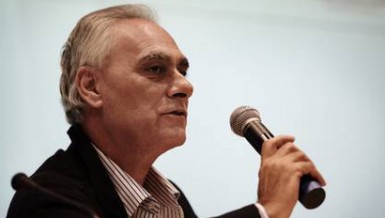
By James M. Dorsey
A decision by European football body UEFA to ban two top Turkish clubs from competing in European championships for match-fixing has highlighted potentially murky politics underlying the worst scandal in Turkish sporting history.
The decision in response to the Turkish Football Federation’s failure to impose penalties and in advance of an appeal by Fenerbahce president Aziz Yildirim against a six-year prison sentence prompted thousands of fans to demonstrate in demand of Prime Minister Recep Tayyip Erdogan’s resignation.
The eruption of the scandal two years ago highlighted a battle for control of Fenerbahce, Turkish football’s most valued political asset, between Erdogan and Fethullah Gulen, 76, a powerful, self-exiled imam with a strong popular and media base and influence in state institutions like the police and judiciary.
In a sign of the times, a spattering of supporters of Istanbul’s two other major clubs, Besiktas and Galatasaray, joined the Fenerbahce protest. Their presence was in the spirit of last month’s joining of forces of fan groups of all three clubs in the protests on Taksim Square against Erdogan’s haughtiness, grandiose urban plans for Istanbul and perceived attempts to Islamize Turkish society.
In contrast to the protesters on Taksim Square whom Erdogan confronted with brutal police force, security forces were nowhere to be seen during Fenerbahce’s march down Bagdat Caddesi, the high-end shopping throughway on Istanbul’s Asian side. A day earlier police armed with tear and pepper gas, backed up by a water cannon, occupied Taksim and surrounded protesters seeking to enter the square.
Less visible was a second contrast between the two protests: while Fenerbahce fans protested as a group, Carsi, the Besiktas support group and Turkey’s most politicised fan group that had led the football fans in the Taksim protests, refused to participate in the latest demonstration near the square.
Much like the Egyptian Ultras, who to reduce their vulnerability officially declared that they were not a party to the mass protests demanding the resignation of President Mohammed Morsi but that their members were free to take part, Carsi spokesmen say they are lying low.Erdogan appears to have succeeded in temporarily intimidating Carsi, which emerged from Taksim as one of Turkey’s most popular groups by allowing the public prosecutor to charge 20 of its members of being part of an illegal organisation.
Carsi also denies any relationship to nightly Hyde Park style gatherings in Abbasaga Park close to their stronghold in Istanbul’s Besiktas neighborhood. Carsi members dressed in their club’s black and white often moderate in Abbasaga what has become known as public fora, gatherings in parks across the city discuss the future of the protest movement, exchange news and listen to music. The Fenerbahce march ended in a similar park on the other side of the Bosporus.
“The Gezi Park demonstrations have shown that rival football fans can work together. The demonstrations have put Erdogan on notice. But that’s not all. They also send a message to Gulen,” said one football fan.
James M. Dorsey is a senior fellow at the S. Rajaratnam School of International Studies, co-director of the University of Würzburg’s Institute of Fan Culture, and the author of The Turbulent World of Middle East Soccer blog.




